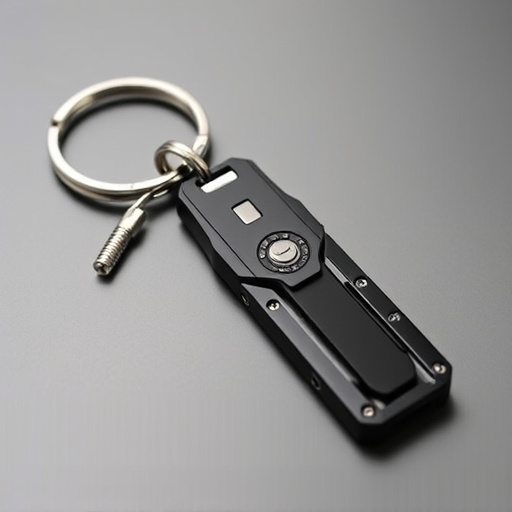Tactical keychain self-defense tools, compact devices attached to keychains with sharp edges or spikes, are popular for personal safety but legality varies widely by state. Some permit open carry without restrictions, while others require concealed carry permits. Effective use is debated, and users must comply with local laws to avoid legal issues, especially regarding weapon size, shape, and purpose. Understanding these regulations is crucial before purchasing self-defense equipment in a diverse market, as options like tactical keychains are influenced by state and local interpretations.
“Unleash peace of mind with a tactical keychain self-defense tool—a compact, powerful device designed for personal safety. This comprehensive guide explores the legal landscape surrounding protective keyring devices in various states, empowering individuals to make informed choices. From understanding the capabilities of these tools to navigating their legality, we delve into how you can effectively utilize tactical keychains as a means of self-defense while adhering to local regulations. Discover popular states where carrying such devices is legal and unlock insights for enhancing your personal safety.”
- Understanding Tactical Keychain Self-Defense Tools
- Legal Considerations for Carrying Protective Keyring Devices
- Exploring Popular States for Legal Carry of Self-Defense Keychains
Understanding Tactical Keychain Self-Defense Tools
Tactical Keychain Self-Defense Tools have gained popularity among individuals seeking personal safety and legal self-defense options. These compact devices are designed to provide an extra layer of security, often incorporating sharp edges or spikes that can be used in emergency situations. The legality of carrying such tools varies across states, with some permitting them only for certain purposes, while others allow open carry without restrictions.
Understanding the features and limitations of Tactical Keychain Self-Defense Tools is essential. They are typically attached to keychains, making them easily portable and accessible. While they can be useful in deterring potential attackers, their effectiveness as self-defense mechanisms is debated. Users should also be aware of local laws regarding concealed or open carry, ensuring compliance to avoid legal repercussions.
Legal Considerations for Carrying Protective Keyring Devices
In many regions, the carry of self-defense tools, such as tactical keychains designed for protection, is governed by strict legal frameworks. Understanding these laws is essential before considering armed self-defense options. The legality of carrying protective keyring devices varies significantly from state to state, with some allowing open carry and others restricting it to concealed carry permits.
When navigating the legal considerations, individuals must also be aware of specific regulations related to weapon size, shape, and purpose. Certain states might have restrictions on the type of self-defense tools permitted, including keychains equipped with sharp blades or other weapons. It’s crucial to research and comply with local laws to ensure legal carrying of tactical keychain self-defense tools, avoiding potential legal repercussions.
Exploring Popular States for Legal Carry of Self-Defense Keychains
In the quest for personal safety, many individuals are turning to tactical keychain self-defense tools as a convenient and discreet means of protection. Exploring popular states for the legal carry of such devices reveals a diverse range of regulations. Key states like Texas, Arizona, and Florida have earned reputations as havens for gun owners, often interpreting self-defense broadly. These jurisdictions allow residents to legally carry various defensive gadgets, including tactical keychains designed for personal safety.
The legality of self-defense tools varies widely across the US, influenced by state laws and local interpretations. Understanding these nuances is essential for anyone considering a tactical keychain as a self-defense measure. Some states have specific regulations regarding the type, size, and functionality of defensive devices, ensuring public safety while respecting individual rights. Staying informed about these legal parameters is crucial before investing in any self-defense equipment, especially when choosing between various options available on the market.
The tactical keychain self-defense tools gaining popularity offer a convenient and legal means of personal protection in many states. Understanding the legal considerations and exploring which areas permit the carry of these devices is essential for those seeking to enhance their safety. With the right knowledge, individuals can make informed decisions about their choice of self-defense tools, ensuring they stay within the boundaries of the law while prioritizing their well-being.
